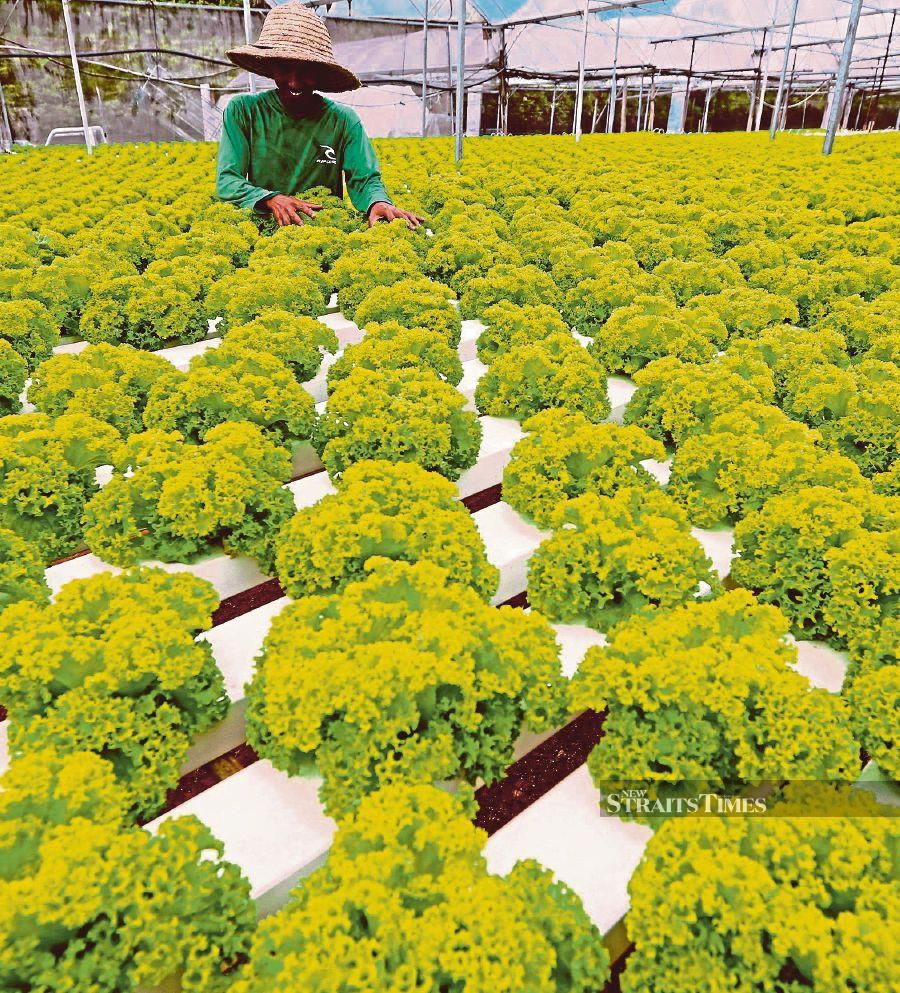 Farming as a career should be made appealing to millennials given that conventional jobs may become scarce because of the Covid-19 pandemic. FILE PIC
Farming as a career should be made appealing to millennials given that conventional jobs may become scarce because of the Covid-19 pandemic. FILE PIC
In the globally connected market we live in today, the value of food lies in the price for an average person or Malaysian, thus incentivizing the import of cheaper food. The Covid-19 situation could prompt the government to rethink some of its food security policies as well as explore resilient ways to feed the nation.
Covid-19 has completely pressured the agri-food value chain. Given the current conditions, the price of chicken in Malaysia may increase significantly if the disruption to the animal feed value chain is prolonged. It may pressure imports, such as fruits and vegetables, as well.
What can Malaysia do about this? First, there is a huge opportunity in the short term to have massive awareness campaigns to get people to change their eating habits and value the quality of food intake. If every household could reduce food waste and the consumption of chicken and other staples, the change in the short term may absorb some food crisis shocks.
The move away from placing value on price to quality may also need some policy rethinking, on how the distorted economic structure that forces households to spend on cars and houses, at the expense of food, can be mended.
The unemployment numbers that are bound to increase because of the global pandemic may be an opportunity for Malaysians to venture into farming. Like most developing countries, urbanization and the rapid growth in income from office jobs compared with difficult agricultural jobs have moved people to the cities and created the perception that farming is for the uneducated and less hip compared with the gig economy.
Farming, especially industrial farming, is highly mechanized and although some farms may require manual labor, the appeal of venturing into farming is more like a hobby rather than an actual job for some millennials. Many trending small-scale farming concentrates on vegetables such as chili and mushroom, but we have yet to see a chili or mushroom billionaire in Malaysia who can be an icon for the younger generation.
In order to make farming profitable and attractive to millennials, it should first be profitable on a large scale and provide a sustainable income to farmers.
Buying local and fresh to support local farmers for a sustainable supply of healthier options, must be a target that requires not only government campaigns but also a perception change in every Malaysian.
This effort should be coupled done together with initiatives to modernize and digitalize farming. The government can incentivize technical solutions and innovations. Some start-ups and farmers are already developing their own handy tools, like the use of rechargeable drills as a cheaper source of power to run electric tillers, smaller harvesters, and other devices. Such solutions make innovations affordable.
The Covid-19 pandemic and the disruption to the global food supply chain will accelerate the trend of rebuilding a resilient food value chain by improving efficiency through digitalization. This includes the use of big data and blockchain technologies that may become a game-changer for small farmers, as these not only increase efficiency but could also make farming hip and cool among millennials compared with office jobs.
Tools like crop planning and management help new farmers choose the right input factors, using fertilizers and pesticides accurately with access to online advisory services. More advanced tools that support traceability may allow farmers to connect directly to their customers and enable better planning of quantity and quality of production.
The level of accuracy in production will also minimize losses in the entire value chain. Significant losses in agriculture occur at all stages of the agri-food value chain, from on-farm post-harvest losses, storage and transportation to processing, packaging, wholesale, and retail. An accurate understanding of loss patterns can help policymakers to develop impactful infrastructure, such as cooling, storage, and transportation, which cause most food losses.
Rethinking how we feed the nation needs effort not only from the government, but also a mindset change in Malaysians, to put value in quality and not price that leads to abundance. This must be complemented by making small farmers profitable by reducing losses in the entire value chain and increasing productivity with innovative solutions.
At the same time, farming should be made appealing to millennials. Jobs perceived as cool and sustainable in the past may shrink altogether given the Covid-19 pandemic.
It is inevitable that a global food crisis will severely impact the world. We have a window of opportunity now to make small changes with big impact if we can rethink how we feed the nation and build a resilient food value chain.









